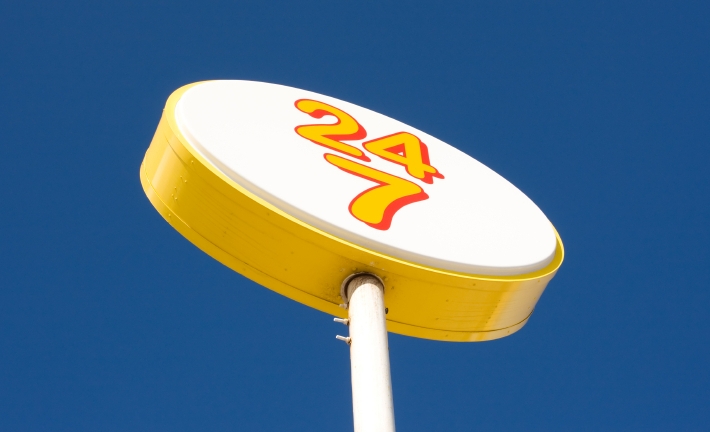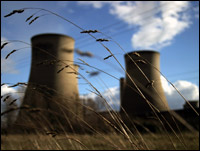If I began this column with “some advice for my friends in the nuclear industry,” you’d probably brace for a big fat cream pie in the industry’s face. I’ve been a vocal critic of the industry that presided over what Forbes Magazine called “the largest managerial failure in American history.” So before offering my advice, I should explain.
Four years ago, I was appointed to the Executive Board of Energy Northwest (formerly WPPSS), which operates Columbia Generating Station, the Northwest’s one remaining nuclear plant. I accepted the appointment in part because I believe the climate crisis is so severe and imminent that it will force a reexamination of nuclear as an energy option. (It has been over 30 years since a new nuclear plant was ordered in the U.S.). I actually do have friends in the nuclear industry now — extraordinary people who have taught me a great deal about technology and human organization.
So I offer this advice in good faith: If you believe in nuclear power as a solution to global warming and fossil fuel dependence, you should be leading the charge for a strong national climate policy, with tight, science-based limits on carbon emissions. Nothing would do more to improve the prospects for nuclear power.
However, you should NOT condition your support for national climate policy on lavish subsidies from taxpayers. That sounds like a ticket to Nuclear Boondoggle 2. We’re still paying for the original movie, and there’s no audience for a sequel. If you want a legitimate shot at a nuclear renaissance, keep it simple: Work to pass a hard cap on carbon and bear your own financial risk.
Our failure to adopt a national climate policy thus far represents a huge and unfair competitive handicap for nuclear power (and all nonfossil-fueled energy sources). The price of energy today does not reflect the exorbitant costs of climate disruption and geopolitical turmoil.
These are real costs that we pay now in dollars and more precious currencies: the costs, for example, of the widening forest health crisis — the dollars we pay to fight fires, the lungs we damage by living near them, the loss of habitat and regional identity when the fall colors fade in New England and the aspens die in the Rockies. Or the costs we pay to defend oil supplies, or to clean up after more intense storms and floods, or to build water storage projects to hold the rain that used to fall as snow — all of them attributable in part to our use of fossil fuels, but not accounted for in the price we pay for those fuels.
Paying these costs amounts to an enormous public subsidy to coal and oil. As long as carbon dumping in the atmosphere is free, and the costs of that pollution are external to the price of fossil fuels, energy markets are artificially tilted against nuclear (and efficiency and renewables.) The best way to level the playing field for nuclear power is to end this subsidy by passing a national climate policy. Cap the carbon, and we’ll see what nuclear can do.
This approach is consistent with fundamental values that are deeply ingrained in the nuclear industry: performance and accountability. Nuclear operations are — by necessity — rigorous, outcome-driven meritocracies. They are incessantly measuring, evaluating, and striving to identify problems and reduce risks. If they didn’t, they would make terribly costly mistakes that would take down the whole industry.
A national climate policy that fully accounted for the costs of fossil fuel dependence by capping climate pollution would create a fair competition for carbon-free energy. Winners and losers in that competition could emerge on their merits. Nuclear would have a fair chance to prove its value. That hard-nosed, performance-based approach is right up the alley of the people I know who operate Columbia Generating Station.
So I find it odd when the people who represent the industry in Washington D.C., like the Nuclear Energy Institute, propose a very different approach, based not on merit and performance but on massive public subsidies. They run their plants like Admiral Rickover’s nuclear navy, but they want the government to throw money at them like a drunken sailor.
Look what’s on the wish list they’re shopping in Congress right now:
- A “permanent financing platform” for nuclear plant development — basically a special public bank, so they don’t have to compete for private financing.
- Tax incentives for nuclear energy manufacturing and production.
- Nuclear fuel supply and “management” of used fuels — free or reduced lunch, coming and going.
- “A cost-shared, public-private partnership to advance development and deployment of small modular reactors.”
Sweet! You have to look at this in context to fully appreciate the audacity and irony.
Congress is tied up in knots over the prospect of offering a very limited public option for health care to a small number of Americans. Ideological opponents in the Senate fear this is the camel’s nose under the tent for socialized medicine. And yet the nuclear industry is proposing a full-tilt single-payer approach for nuclear financing to attract the votes of the very Senators whose free-market principles preclude support for a public option in health care legislation?
And how does this proposal square with the lessons of the Great Recession? What NEI is asking for here is socialization of risk on an epic scale — shielding the industry from market evaluations of risk by foisting it off on taxpayers. Isn’t shucking and jiving and playing shell games with risk exactly what touched off the financial crisis and the 10 percent + unemployment that ensued? And this time, it’s not a matter of backing into a bailout because existing institutions are too big to fail. NEI is proposing to prospectively create huge government liabilities in order to foster the development of a new nuclear industry that would stand above market judgments of risk and competitiveness … and all this to garner votes from Senators who espouse fiscal restraint?
Look, why don’t we meet halfway here? I’m not a fan of nuclear power, but I’ll concede that it merits another look in light of the climate emergency — the urgent imperative to decarbonize our energy system on a massive scale. A cap on carbon emissions will do more to improve the competitive prospects for nuclear than all the public subsidies they are likely to win from a Congress that’s turning from stimulus mode toward deficit reduction.
And it’s fair. If nuclear advocates really believe in their technology, why don’t they join the fight for a carbon cap and compete for the market space it creates without passing off all the risk to taxpayers?
To be honest, I’d bet against the nuclear industry in a fair competition like that. It’s not because I think they’re incompetent; on the contrary, they’re among the most capable people I know. It’s because I think the technology is inherently too risky, complicated, and expensive. I believe there are cleaner, cheaper, more reliable options that can scale to the climate challenge — energy solutions we WANT the rest of the world to have.
But I’d expect the nuclear industry, if it really believes in its product, to take the other side of the bet. And I’d expect Senators who believe in competition, accountability, and fiscal discipline to give the nuclear industry a fair shot, not a free ride at taxpayers’ expense.



